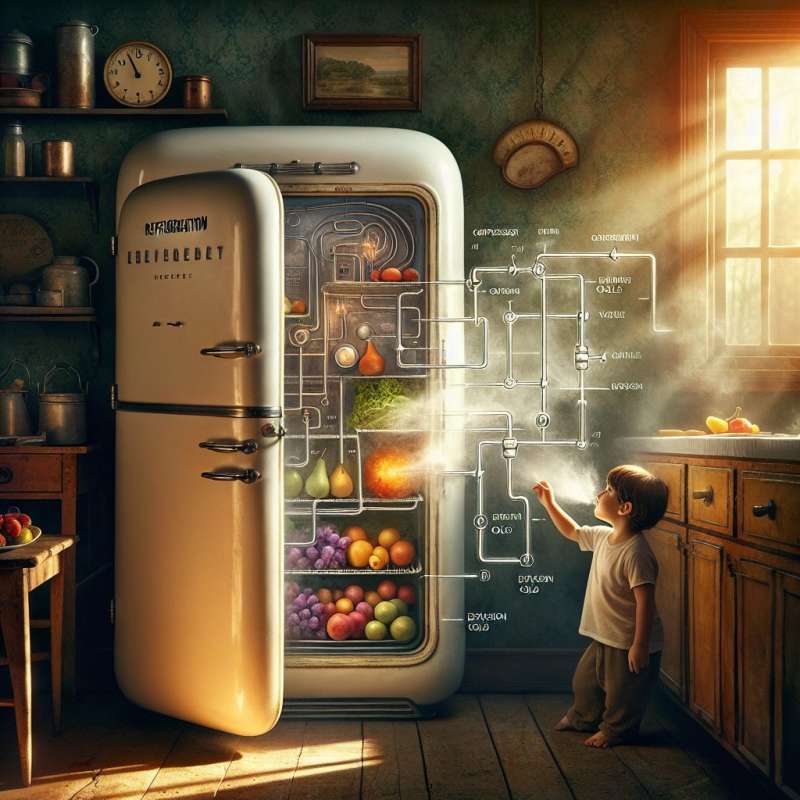
Refrigeration: Historical Journey
Early refrigeration dates back to ancient times where ice was harvested and stored in insulated caves. The first artificial refrigeration system was invented by William Cullen in 1748, but it wasn't until 1834 that Jacob Perkins built the first working model.
Thermodynamics and Refrigeration
Refrigeration operates on the principles of thermodynamics, specifically the second law. It involves removing heat from a space or substance, thus lowering its temperature, by means of a refrigeration cycle employing a refrigerant fluid.
Air Conditioning Evolution
Willis Carrier invented the first modern air conditioner in 1902. Initially designed to control humidity in a printing plant, it led to enhanced industrial production, and eventually, improved home comfort and energy-efficient household cooling systems.
Refrigerants: Environmental Impact
Refrigerants like CFCs and HCFCs were once widely used but have been phased out due to ozone depletion and global warming potential. Today, more eco-friendly refrigerants, such as HFCs, are common, though natural alternatives are gaining traction.
Vapor Compression Cycle
The most common refrigeration cycle is the vapor-compression cycle, which includes four main components: the evaporator, compressor, condenser, and expansion valve. It's the backbone of most modern refrigeration and air conditioning systems.
Emerging Cooling Technologies
Emerging technologies in refrigeration and air conditioning include thermoelectric coolers and magnetic refrigeration. These promise higher energy efficiency and lower environmental impact, potentially revolutionizing the industry in the coming years.
Smart Climate Control
Smart thermostats and IoT devices are making air conditioning systems more efficient. They learn from user habits, adapt to real-time weather conditions, and can be controlled remotely, significantly reducing energy consumption and costs.Ice in Ancient Egypt
Ancient Egyptians made ice by placing water-filled earthenware pots on straw-covered rooftops, cooling it through night-time evaporation.
Who invented first artificial refrigeration?
Jacob Perkins in 1834
William Cullen in 1748
Willis Carrier in 1902
Company